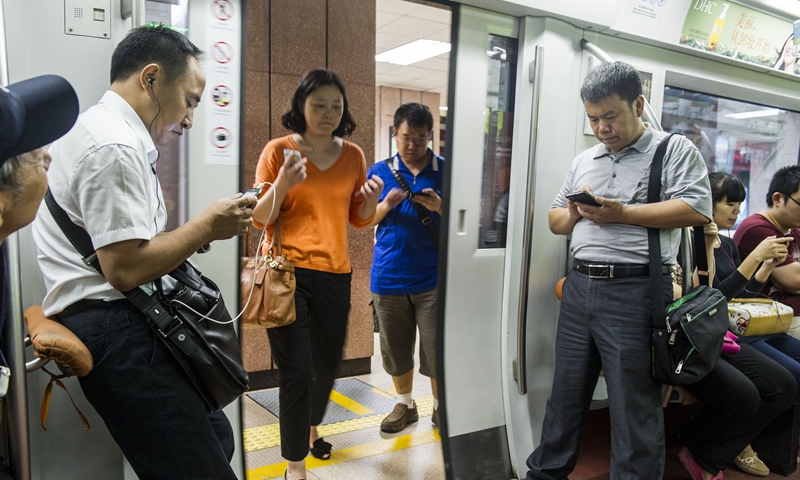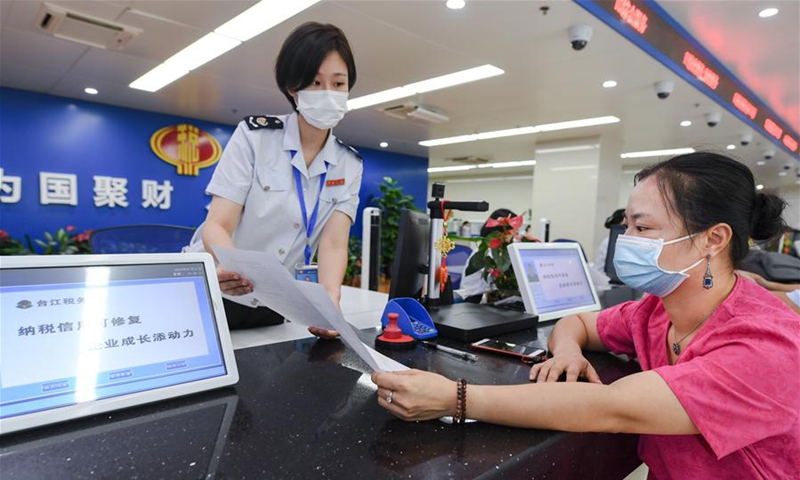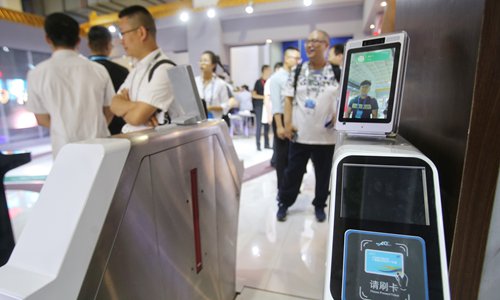
People check their phones in a Beijing subway. Photo: Li Hao/GT
Beijing's subway may exempt passengers with good credit records from mandatory security checks as part of its new smart measures to speed up commuters' entry into the subway.
The Beijing subway is expected to conduct a trial of the measure based on passengers' credit scores at several stations, according to a municipal government report on the city's traffic.
With this system, passengers carrying small bags are likely to enter the subway station directly without going through security checks. Currently, anyone who enters the Beijing subway has to pass a security check.
The credit system reflects whether passengers have exhibited uncivilized behavior on the subway such as eating or carrying prohibited items, or have done so on other public transportation systems, media reports said.
Chinese analysts said that this is a good example of China's application of the national social credit system, which is believed to be vital to raise the social management level. But some others said that this system, which is based on passengers' credit records, brings the risk of data leaks.
The Global Times found that Beijing's Fuchengmen subway station adopted this system in 2019 on a trial basis, the only one so far.
Passengers can apply for a quick pass through the Yitongxing phone app and have their faces scanned when they enter the subway station, a staff member of the Beijing Subway publicity department told the Global Times on condition of anonymity on Wednesday. The staff member said that the fast entry system using passengers' credit records is still undergoing discussion and is in its testing phase.
City commuters who have good credit records and have used the subway more than 10 times can apply for a quick pass online. Applicants will have to go through a facial recognition procedure first and submit an application for approval via the app.
The Beijing Municipal Commission of Transport has released a code of conduct for subway passengers, stating that "uncivilized" behavior, including eating on a train, would be added to the individual credit information system.
Xie Yongjiang, executive director of the internet management and legislation research center of the Beijing University of Posts and Telecommunication, told the Global Times that the trial of this system in the Beijing subways is part of China's ongoing social credit system that aims to inspire social trust and improve governance.
The app will help commuters and ease long lines to enter some subway stations. It is not an abuse of big data or the social credit system. At a time when China has yet to establish a perfect social credit system, pilot projects are encouraged. Large-scale applications may be improper, however, given that databases are incomplete and can't be shared across many departments, Xie said.
Xie suggested perfecting legal clauses on the use of credit system data to avoid personal information leaks and privacy violations.
Previously, Wang Jianjin, a member of the National Committee of the Chinese People's Political Consultative Conference, suggested establishing a white list of passengers who would be exempt from inspections or random checks, along with a disciplinary system for dishonest behavior.
Launching this system in the entire Beijing subway system or in other cities could still be difficult as the credit system in China has not yet been perfected, said Zhu Tao, a professor from the Beijing University of Technology. Zhu also expressed concerns over data sharing.
The weekday ridership of the Beijing subway is about 12 million, according to data compiled before the COVID-19 outbreak. Passenger traffic congestion is concentrated in the morning and evening peak periods for two hours.
Guangzhou began to try a similar fast pass lane in the subways for good credit holders in 2018. The city's subway system was authorized by the Ministry of Public Security to access passengers' information for these security checks.




